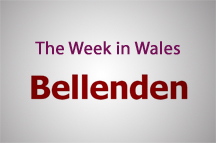 In the shadow of Scotland, Wales has not received the attention of its Celtic cousin in the run up to the General Election. Undoubtedly the ferocity of the debate in Scotland, thanks in most part to the rise of the SNP, is far from being replicated in Wales. However, Labour are unlikely to receive the welcome in the hillside they could once rely upon and with plenty of Wales’ 40 seats still hanging in the balance as the General Election campaign intensifies, results in Wales are far from certain.
In the shadow of Scotland, Wales has not received the attention of its Celtic cousin in the run up to the General Election. Undoubtedly the ferocity of the debate in Scotland, thanks in most part to the rise of the SNP, is far from being replicated in Wales. However, Labour are unlikely to receive the welcome in the hillside they could once rely upon and with plenty of Wales’ 40 seats still hanging in the balance as the General Election campaign intensifies, results in Wales are far from certain.
The latest YouGov/ITV Wales poll for Wales, launched this week, showed the only party on the move upwards was Plaid Cymru. With only a 3% gain in the polls and still sitting in fourth behind Labour, the Conservatives and UKIP, their advance is not going to lead to a Labour whitewash like in Scotland. But the Welsh nationalists could stand to gain one (or perhaps even two) from Labour - taking their total up to four/five - at a time when every seat is crucial in the search for a majority.
 In all likelihood it is Leanne Wood’s presence in the TV debates that has bolstered support for the party. In her two attempts at establishing herself as the ‘voice of Wales’ Ms Wood has held her own against the more established faces standing beside her.
In all likelihood it is Leanne Wood’s presence in the TV debates that has bolstered support for the party. In her two attempts at establishing herself as the ‘voice of Wales’ Ms Wood has held her own against the more established faces standing beside her.
The other Welsh party leaders can only dream of such a moment in the spotlight, but Labour have held strong in the latest poll at 40%.
This indicates a reprieve in the decline Labour have experienced in the polls over the past two years. Ynys Môn and Llanelli are the seats at most risk from a nationalist advance, but at current standings Labour should retain the vast majority of the 26 seats they won in Wales in 2010.
That said, Labour still have the biggest strategic balancing act to pull off: Attempting to maintain their attack on the legacy of the Westminster Coalition, while at the same time champion the record of the Labour administration in Cardiff.
The Conservative decline of 1% shouldn’t trouble them too much, as their cohort of eight seats in Wales last election is their best showing since the early years of Thatcher and they look like they should return the same number - even if a few seats do swap hands - come May 8.
However, the currently Conservative constituency of Cardiff North, which has a tiny 194 majority over Labour, will perhaps be the most interesting battle between the two biggest parties.
 It is considered the best barometer for the General Election in Wales due to the fact that since 1983 it has returned an MP from the same political party as the Prime Minister. All eyes in Wales might then be on the contest between Labour’s Mari Williams and the Conservative’s Craig Williams in the fourteenth most marginal constituency in the UK as we hope to foresee the composition of the next government (you can find further analysis of this seat on Bellenden’s General Election website).
It is considered the best barometer for the General Election in Wales due to the fact that since 1983 it has returned an MP from the same political party as the Prime Minister. All eyes in Wales might then be on the contest between Labour’s Mari Williams and the Conservative’s Craig Williams in the fourteenth most marginal constituency in the UK as we hope to foresee the composition of the next government (you can find further analysis of this seat on Bellenden’s General Election website).
The Liberal Democrats polling makes for the drabbest reading. Refusing to budge at 6%, the Lib Dems’ two Mid Wales constituencies could to fall to Plaid and the Conservatives, and Cardiff North to Labour; leaving them with no seats in Wales.
The unknown quantity is UKIP. Polling at 13% it is still unclear where their votes are coming from. Plaid Cymru’s Carmarthen East and Dinefwr MP Jonathan Edwards has even suggested that it is a shift of Labour voters to UKIP that is helping Plaid in marginal constituencies. But, as is the case across the UK, UKIP’s relatively good polling is unlikely to translate into any seats due to the disparate nature of their support. It does raise some serious questions however, over the possibility of what was thought to be an English phenomenon taking seats in the Assembly elections in just over a year’s time.
Whatever the polls say now, there is still a long way to go in this General Election campaign and plenty of time for things to change. I’m sure the debate will continue in the Siambr next week when the AMs return from Easter recess.














